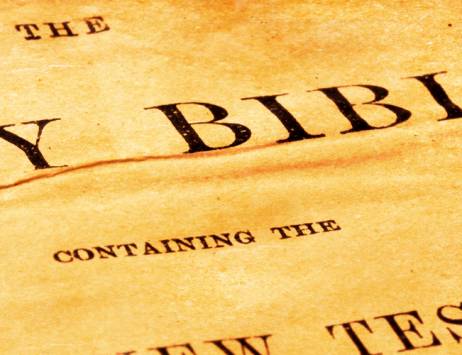In 1604, King James I commissioned a new version of the Bible, translated from the original Hebrew and Greek texts by the leading scholars of the day, for the English-speaking world. The impact of that decision—and of the monumental work that it produced—is incalculable.
A wide array of famous people have testified to the legacy of the King James Bible. Victor Hugo, the French author of Les Miserables was referring to the King James Version when he said, “England has two books, the Bible and Shakespeare. England made Shakespeare, but the Bible made England.” H. L. Mencken described the King James Version as “a mine of lordly and incomparable poetry, at once the most stirring and most touching ever heard of.” Abraham Lincoln, in his Gettysburg Address, and Martin Luther King, Jr., in his “I Have a Dream” speech, both tried to approximate the cadences, rhythm, and language of the King James Bible.
Part of its legacy can be found in its contributions to the English language. The King James Version is quoted every day—often by people who don’t realize they’re quoting it. Many common phrases in western culture can be found in the book King James commissioned over four hundred years ago. Estimates vary, but many scholars put the number of phrases it spawned at around 250.
A brief sampling of well-known phrases that come from the King James Bible:
- a broken heart (Psalm 34:18)
- a cross to bear (Luke 14:27)
- a graven image (Deuteronomy 5:8)
- a peace offering (Exodus 24:5)
- a sign of the times (Matthew 16:3)
- a soft answer turns away wrath (Proverbs 15:1)
- a thorn in the flesh (2 Corinthians 12:7)
- a two-edged sword (Proverbs 5:4)
- a voice crying in the wilderness (John 1:23)
- baptism of fire (Matthew 3:11)
- be fruitful and multiply (Genesis 1:22)
- born again (John 3:3)
- breath of life (Genesis 2:7)
- dust to dust (Genesis 3:19)
- feet of clay (Daniel 2:31–33)
- fire and brimstone (Genesis 19:24–26)
- go the extra mile (Matthew 5:41)
- he who lives by the sword dies by the sword (Matthew 26:52)
- letter of the law (2 Corinthians 3:6)
- nothing new under the sun (Ecclesiastes 1:9)
- patience of Job (James 5:11)
- sign of the times (Matthew 16:3)
- sour grapes (Jeremiah 31:30).
Though some of these phrases appeared in earlier Bible translations, it was the King James Version that made them popular.
How do we properly summarize its impact and legacy? To say that it shaped cultures, influenced history, and changed the world doesn’t quite do it justice. The King James Bible changed lives. Who can begin to estimate how many people have been impacted by its words over the past four centuries?
The King James Bible continues to change lives. Four hundred years after its publication, hundreds of millions of people still turn to it every day as their preferred version of Scripture. In its words, they find strength. They find purpose. They find inspiration and encouragement. They find hard truths and soothing assurances.
For as the rain cometh down, and the snow from heaven, and returneth not thither, but watereth the earth, and maketh it bring forth and bud, that it may give seed to the sower, and bread to the eater: So shall my word be that goeth forth out of my mouth: it shall not return unto me void, but it shall accomplish that which I please, and it shall prosper in the thing whereto I sent it. (Isaiah 55:10–11)
The final word on the Bible’s legacy belongs to Jesus. In Matthew 24:35, He says, “Heaven and earth shall pass away, but my words shall not pass away.” For four hundred years, the King James Bible has ensured that the Word of God would not pass away.
###
This article includes material from the King James Study Bible, Full-Color Edition from Thomas Nelson. To learn more about this Bible, watch the video!





